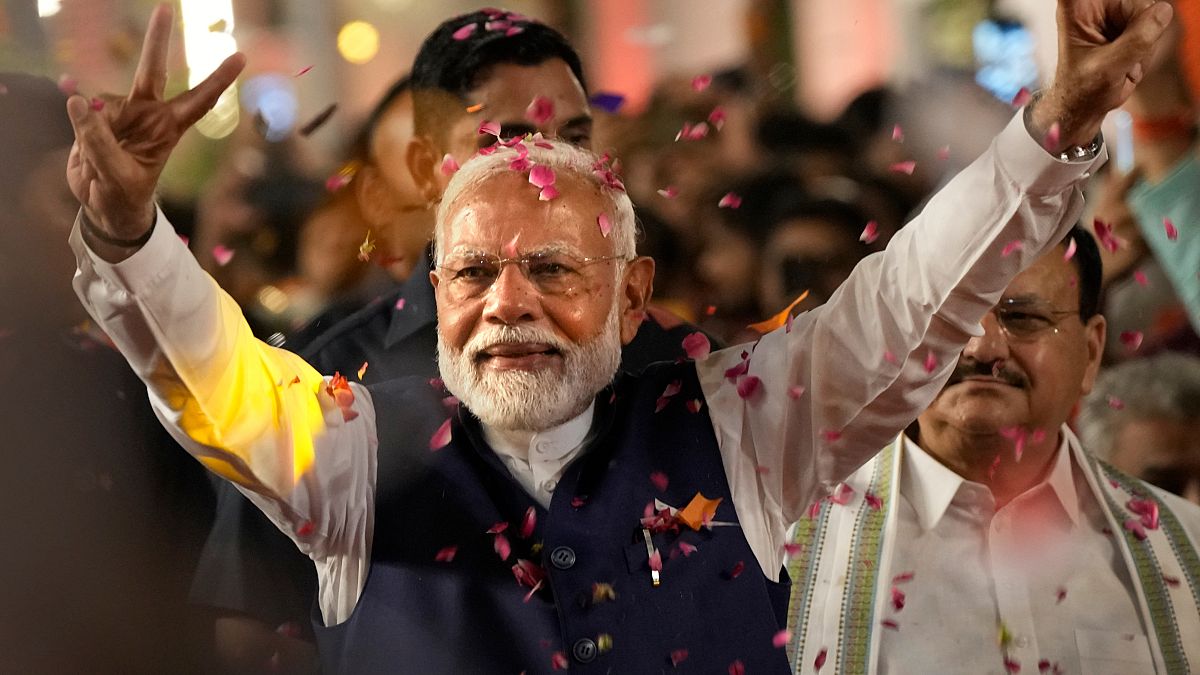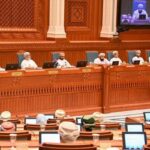Narendra Modi, India’s Prime Minister, has secured a decade in power after his coalition’s victory in the general election. Despite facing a stronger-than-expected opposition, Modi declared the win as a victory for the world’s largest democracy. This marks the second time in India’s history that a leader has retained power for a third term. However, it is also the first time since his party, the Hindu nationalist Bharatiya Janata Party, came into power in 2014 that they have failed to secure a majority independently. Modi will now need support from other parties in his coalition, a setback for the 73-year-old leader who was aiming for a landslide win. The election saw over 640 million votes cast in a six-week long process.
The unexpected drop in support for the BJP has been seen as a victory of sorts for the opposition, with the Congress party claiming a “moral and political loss” for Modi. Despite this setback, Modi has vowed to continue with his agenda of elevating India’s economy to the world’s third largest. He has promised to advance India’s defence production, create jobs for youth, increase exports, and provide support for farmers, among other initiatives. Many of the Hindu nationalist policies that Modi has implemented over the past 10 years are expected to remain in place. Before Modi came to power, India had coalition governments for 30 years, marking a shift in the political landscape.
Modi’s victory has been met with mixed reactions, with some celebrating his continued leadership and others expressing concerns about his polarizing politics. His ability to secure a third term in power has solidified his position as one of India’s most influential leaders. Modi’s leadership style and policies have been a topic of debate both within India and on the international stage. His focus on economic growth and development has garnered widespread support, but his Hindu nationalist agenda has faced criticism from some quarters. Despite this, Modi remains a popular figure among many Indians, with his supporters praising his efforts to bring about positive change in the country.
As Modi embarks on his third term as Prime Minister, he faces a number of challenges, including a strong opposition and a divided electorate. His ability to navigate these challenges and continue with his development agenda will be crucial for India’s future. Modi has vowed to bring about big changes in the country and has promised to work towards a stronger economy and a more prosperous future for all Indians. With his strong mandate and continued popularity, Modi is well-positioned to lead India into a new era of growth and prosperity. As he begins his third term in office, all eyes will be on Modi to see how he navigates the complex political landscape and delivers on his promises to the Indian people.





















